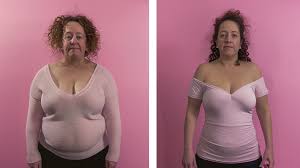Turning 40 is a milestone that many women embrace with pride. It marks a new chapter filled with deeper self-awareness, refined priorities, and a greater appreciation for life’s journey. With decades of life experience under your belt, you may feel more confident and grounded than ever before. But amid this personal empowerment, many women also encounter an unexpected and often frustrating reality: the strategies that once kept your weight in check whether it was cutting carbs, increasing cardio, or skipping dessert suddenly don’t seem to work anymore.
This shift isn’t in your head. It’s rooted in very real physiological and lifestyle changes that begin to emerge in your 40s. Hormonal fluctuations particularly around perimenopause and menopause can influence everything from fat distribution to appetite and mood. Meanwhile, a natural decline in muscle mass and a slowing metabolism make it more difficult to burn calories efficiently. Add to that the challenges of a busy lifestyle, such as career demands, caregiving responsibilities, and disrupted sleep, and it’s easy to see why weight loss feels like an uphill battle.
But here’s the encouraging truth: while weight loss after 40 may be more complex, it’s far from impossible. In fact, with the right strategies tailored to your body’s evolving needs you can lose weight in a way that’s not only sustainable but also enhances your energy, confidence, and long-term health. It’s not about chasing your 20-year-old self; it’s about optimizing the woman you are now. And that’s a goal worth striving for.
Why Is Weight Loss Harder After 40?
Weight loss is harder after 40 due to hormonal changes, a slower metabolism, and loss of muscle mass. These shifts reduce the number of calories your body burns at rest, making it easier to gain weight and harder to lose it even with the same diet and exercise habits.
- Hormonal Changes: As women approach menopause, levels of estrogen, progesterone, and other hormones fluctuate. These changes can lead to increased fat storage, especially around the belly.
- Slower Metabolism: After 40, your resting metabolic rate tends to decline, meaning your body burns fewer calories at rest.
- Loss of Muscle Mass: Muscle mass naturally decreases with age, which can further reduce metabolism since muscle burns more calories than fat.
- Lifestyle Factors: Busy careers, parenting responsibilities, and less time for exercise can make it harder to prioritize health.
How to Successfully Lose Weight After 40?
To successfully lose weight after 40, focus on strength training to boost metabolism, eat a balanced diet rich in whole foods and lean proteins, manage stress and sleep, stay active throughout the day, and support hormones and gut health. Consistency, not perfection, is key to long-term results.
1. Prioritize Strength Training
Cardio is great, but strength training is essential for women over 40. Building lean muscle helps boost metabolism, strengthen bones, and prevent age-related muscle loss.
Try this: Incorporate resistance workouts 2–3 times per week using weights, resistance bands, or bodyweight exercises like squats and push-ups.
2. Adjust Your Nutrition
Your body’s needs change over time. Focus on whole foods, lean protein, healthy fats, and fiber-rich carbohydrates.
Key Tips:
- Reduce added sugars and refined carbs.
- Eat plenty of vegetables, fruits, and legumes.
- Don’t skip meals, especially breakfast.
- Consider tracking your calories to avoid overeating.
3. Balance Your Hormones Naturally
While hormone replacement therapy (HRT) is an option for some, lifestyle can also influence hormone health.
Natural Helpers:
- Get enough sleep (7–9 hours per night).
- Manage stress with practices like yoga, meditation, or journaling.
- Avoid processed foods and alcohol in excess.
4. Stay Active Throughout the Day
Exercise doesn’t have to mean hours in the gym. Stay active by walking more, standing instead of sitting, or doing short bursts of movement throughout your day.
5. Support Gut Health
A healthy gut helps regulate weight, mood, and energy. Probiotic-rich foods like yogurt, kefir, sauerkraut, and fiber-rich foods are your gut’s best friends.
6. Hydrate Intelligently
As you age, your sense of thirst may decline. Drink water regularly even if you’re not thirsty. Hydration helps with digestion, energy levels, and appetite control.
7. Be Patient and Consistent
Results may come slower, but consistency is key. Avoid fad diets. Instead, focus on long-term lifestyle changes that you can maintain.
Final Thoughts
Losing weight after 40 is not about harsh restrictions, crash diets, or punishing exercise routines. It’s about rebalancing your body and lifestyle in a way that aligns with your current needs and long-term health goals. At this stage of life, it becomes increasingly important to move beyond the scale and focus on how you feel about your energy levels, mental clarity, strength, and emotional well-being.
Weight loss after 40 is a holistic journey. It requires you to listen to your body, honor your hormonal shifts, and adjust your habits in a way that supports healing and vitality not deprivation. This means choosing nutrient-dense foods that fuel you, moving in ways that build strength and stamina, and creating routines that prioritize rest, stress relief, and joy.
It’s also about mindset. Self-compassion and patience are your greatest allies. Progress may come slower than it once did, but it’s still progress. Every small, consistent choice adds up whether it’s preparing a nourishing meal, getting outside for a walk, or going to bed an hour earlier.
Ultimately, successful weight loss after 40 is about creating a lifestyle that not only helps you look better but also feel better from the inside out. It’s not about becoming who you were in your 20s, it’s about becoming the healthiest, strongest, most confident version of who you are today.


